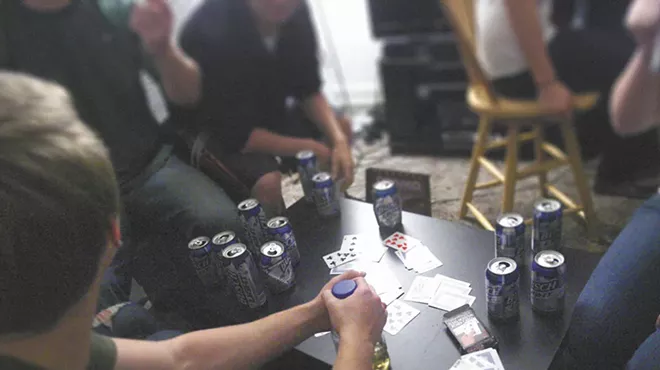Wednesday, December 9, 2015
The next step for WSU against drug and alcohol abuse
A Washington State University student fell from a third-story balcony in November causing a broken arm and some internal injuries. It was the fourth alcohol-related fall this semester. None were fatal.
WSU went through a similar pattern a few years ago. The university saw an increase in drinking and drugs, and injuries as the result. Administrators put a task force in place, headed by then Health and Wellness Services Director Bruce Wright, with the goal of evaluating the programs in place and assessing what needs to be changed.
Since the task force, the 2014-15 Clery report shows the following changes from 2012 to 2014:
- A spike of 42 to 292 in drug referrals in on-campus residences and 190 to 318 overall on-campus
- A decline in drug arrests 49 to 10 in on-campus residences, and 199 to 40 total on-campus
- Alcohol went from eight arrests in 2012 to zero in the residences, but on-campus in general only shifted from 168 to 147 arrests
- Alcohol referrals in the residences increased from 224 to 240, and on-campus overall referrals went from 863 to 299
Now with the increase in falls again, a shift in the numbers and the unsure future of the task force, what’s next?
Leafing it off-campus
WSU Assistant Police Chief Steve Hansen says the increase in drug referrals is because of the legalization of marijuana and a 2008 court decision.
“Some of our investigation abilities are limited in residence halls, it’s difficult to get a warrant because it’s difficult to prove that they’re under 21,” Hansen says.
These limitations stem from the State v. Houvener ruling, when an officer roamed the dormitory hallways investigating a resident’s stolen property. He overheard two other residents having a suspicious discussion and ordered them to open the door. The court found this and the statement he received afterward without giving Miranda rights to be a violation of privacy. Now university police cannot roam the halls unless invited inside or with a warrant. And they need to prove the person who possesses marijuana is under 21. But it is still a violation to have marijuana on-campus, which is why the university police resorts to referrals.
Pullman Police Commander Chris Tennant thinks it’s unrealistic to expect students to dispose of it when they step on campus and into a dorm room.
“Marijuana is a very socially acceptable drug at that age group,” Tennant says. “Unfortunately it is still illegal on campus and legal everywhere in the state off campus.”
What to do with the numbers
The goal of the task force was not to find new strategies, but review and adjust, says Paula Adams, the associate director of health promotion. The task force recommended Adams’ team start the Red Watch Band, a bystander intervention program that is volunteer-based. While the program showed positive results in students being more willing to intervene and knowing what to do in a drug or alcohol overdose situation, there were some drawbacks.
“Out of the thousands of students we have on campus, only a few hundred chose to participate in this program,” Adams says.
Now Adams and her team are trying to find a way to get more students to be involved. Eighty percent of the students go through mandatory drug and alcohol awareness classes before the semester begins, says Cassandra Nichols, director of Counseling Services and member of the task force. This was one of the many services continued through the task force’s evaluations. The numbers sway, but Tennant and Hansen agree that there has been a change in the drinking culture among students for the better.
“Falls are never going away 100 percent,” Tennant says. “I think this year is an anomaly, and hopefully we have a couple of good years ahead.”
WSU has implemented these programs, and taken steps to promote alcohol and drug awareness and safety. But there are still falls, referrals and arrests.
“It’s hard to know whether it’s an increase in incidents or increase in reporting referrals,” Nichols says. “Many of them happen in the Greek community.”
But Tennant thinks while these measures are good, it’s going to take more before the students get to campus. It runs deeper than what they can learn when they arrive at school.
Tags: WSU , alcohol , marijuana , Washington State University , News , Image















